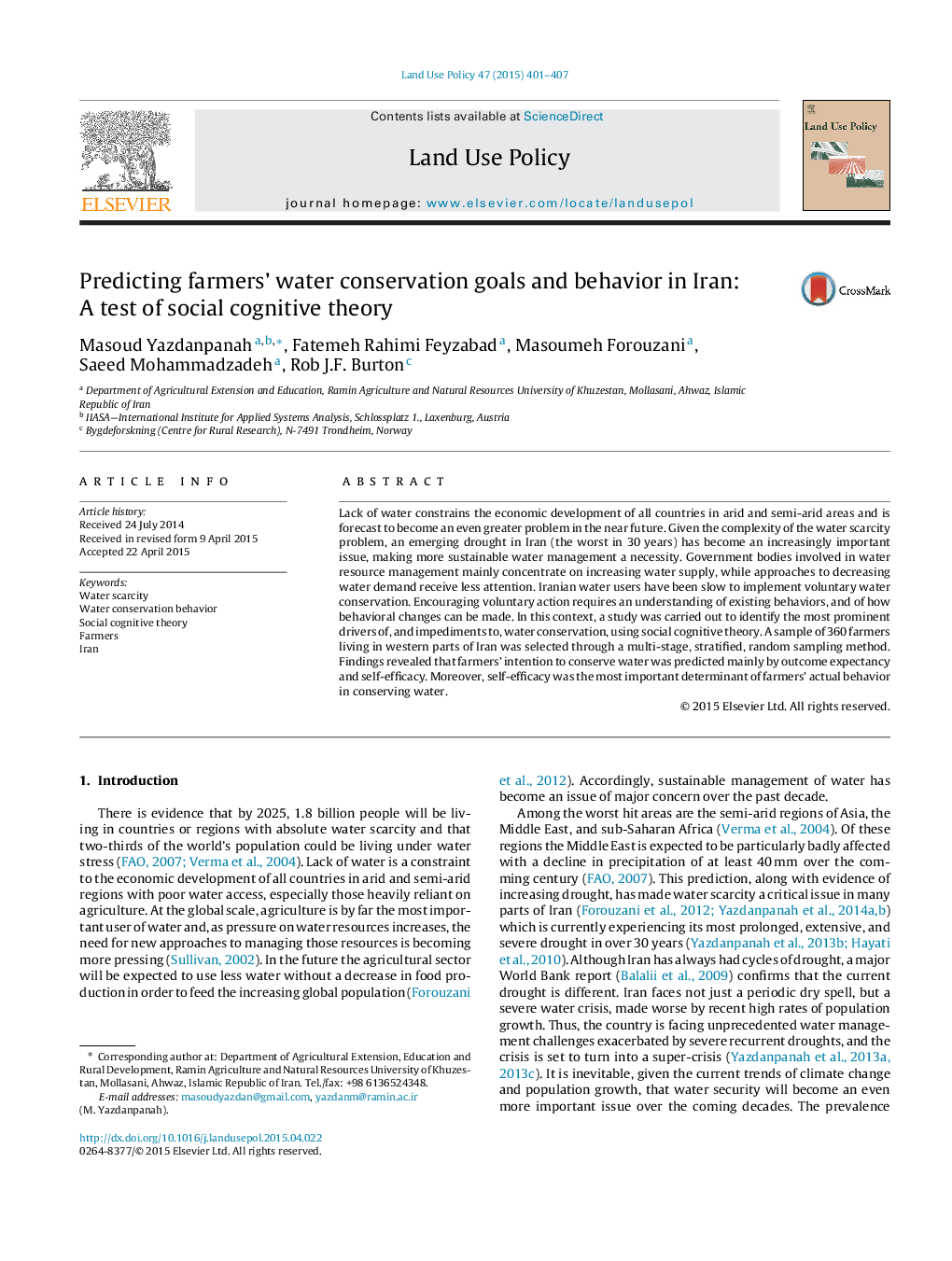| Article ID | Journal | Published Year | Pages | File Type |
|---|---|---|---|---|
| 6548167 | Land Use Policy | 2015 | 7 Pages |
Abstract
Lack of water constrains the economic development of all countries in arid and semi-arid areas and is forecast to become an even greater problem in the near future. Given the complexity of the water scarcity problem, an emerging drought in Iran (the worst in 30 years) has become an increasingly important issue, making more sustainable water management a necessity. Government bodies involved in water resource management mainly concentrate on increasing water supply, while approaches to decreasing water demand receive less attention. Iranian water users have been slow to implement voluntary water conservation. Encouraging voluntary action requires an understanding of existing behaviors, and of how behavioral changes can be made. In this context, a study was carried out to identify the most prominent drivers of, and impediments to, water conservation, using social cognitive theory. A sample of 360 farmers living in western parts of Iran was selected through a multi-stage, stratified, random sampling method. Findings revealed that farmers' intention to conserve water was predicted mainly by outcome expectancy and self-efficacy. Moreover, self-efficacy was the most important determinant of farmers' actual behavior in conserving water.
Related Topics
Life Sciences
Agricultural and Biological Sciences
Forestry
Authors
Masoud Yazdanpanah, Fatemeh Rahimi Feyzabad, Masoumeh Forouzani, Saeed Mohammadzadeh, Rob J.F. Burton,
